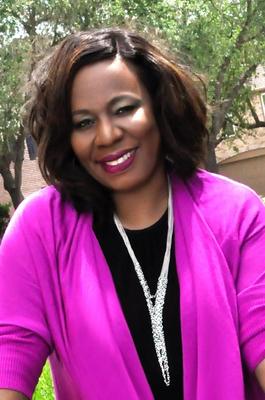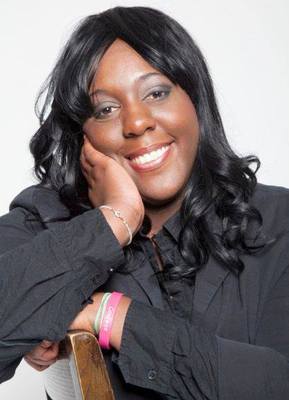There are many women who struggle with different bouts of issues relating to mental health. Some acute, some obtuse. At any rate, there's a big difference between sadness, depression, and clinical disorders that interrupt the natural process of the mind. Depression, disorders, obsessions and unregulated mood swings are very serious issues which are deeper than we presume. When asked to imagine mental health in the black community, many people could probably envision a brick wall between themselves and the person they are trying to confide in. It's a widely known stereotype that topics like depression and suicide are "white people things" or that mental illnesses will just pass on like a common cold. As Black women we've been taught that we have super powers and strength unknown to regular human beings. We are strong, fearless, magical and with FAITH we are able to overcome anything and everything just like super-heroes. In our day to day struggles we cry everyone's tears and embrace being the king of sorrow without a fight.
We accept grief, sadness, and despair as normalcy and "just another day to get through" without acknowledging the severity of mental illness. This has happened for too long within the African-American community. It's not easy to erase the stigmas attached to mental illness but thankfully it seems as if the climate is changing through advocates, professionals and stories that are being brought to the forefront as a way to re-frame how we view and address mental health in our community.
Author and Mental Health Advocate, Felicia Johnson has been in the forefront of fighting against the stereotypes of mental illness for years and addresses these issues in her novel "Her." In addition, TV One is also trying to dispel the myths behind mental illness and what it actually looks like through their upcoming original film, "The Secret She Kept." The film is based on the highly acclaimed book from number one Best Selling Author ReShonda Tate Billingsley who along with Johnson spoke to me about breaking the stigma of mental illness in the Black community, specifically when it impacts Black women from an array of backgrounds and social classes.
This perception of Black Women being strong and having magical powers that allow them to operate like Marvel Super heroes is wonderful yet problematic. I do believe that embodying this perception has helped us strive in a world that is unkind to us and beats us down from every angle. We are marginalized, disrespected, oppressed and thought of as "less than." At most times we're not even thought of at all. Yet we still overcome, excel and achieve like the champions we are---even coming out on top in scenarios that would have left others lifeless and shattered -but at what cost? Why do we both accept and ignore the fact that the same elements that causes any other group to be sad, broken or mentally impacted impacts us? The truth of the matter is we are only as strong as glass as Goapele and Estelle say. At any time we can break. Despite how we all present ourselves externally we cannot ignore what we experience internally.
TV One is showcasing the dynamics of all of this in "The Secret she Kept" which is based on Reshonda Tate Billingsley's astronomical best-seller and written for the screen by Rhonda F. Baraka. The film immerses viewers in the story of a prominent family that lets shame, confusion and misunderstandings about mental illness send them down a tragic path. In "The Secret she Kept," Tia Jiles is the mirror image of many successful Black women. She has just married the man of her dreams and is on the brink of launching a major political campaign when a pattern of erratic behavior leads her husband to uncover her secret:Tia suffers from mental illness. Billingsley is convinced that the stigma associated with mental illness among African-Americans is the reason many women keep their illness a secret. "It's time to pay attention to our mental health without being afraid of the labels attached to various conditions. We've been taught that mental illness is a dirty little secret that families should keep within the home," she explained. "I hope that this film will help people to become more understanding of mental illness and more importantly it could help women to not be embarrassed about what they are suffering from and get the help they need," said Billingsley.
D.C based Psychotherapist, Dr. Dwayne Buckingham explained that we ought to be concerned and proactive about our mental health anytime any of us cannot control our behavior to the point in which it affects our livelihood, happiness, drive, respect and well-being. "Our mental well-being is something that has to be addressed in a positive healthy manner with professionals who understand the science behind mental disorders," begins Dr. Buckingham. "In African- American communities we've been taught that prayer fixes everything but there is a difference between theology and psychology that can longer be ignored. Faith is vital but the problem is that if you continue to only believe in something that you can't see than it forces you to not have to deal with things you can see. Psychology is a social science that forces you to deal with reality. Professional counseling helps you deal with the here and now. You can be spiritual and still be depressed because your mind is troubled even if you feel your soul is intact. The serotonin levels in our bodies are very real. If your body is not producing enough serotonin this leads to depression and other imbalances. This is simple science. Our minds are extremely impacted by various things in life and there is therapy, medication and counseling to help us get better," said Dr. Buckingham. Faith without work is dead.
Felicia Johnson, best-selling author, international speaker, and mental health advocate knows exactly how the mind is impacted by our experiences. She is a survivor of child abuse, teen homelessness and is a woman who still battles with her own mental illness both in the work place and at home. Even as she accepts and deals with her own struggles, Johnson advocates for other women as she tries to erase the stigma of mental illness through her work and her novel, "Her." Johnson was also nominated for the Georgia Writer's Association Author of the Year Award in 2014. She shared that the root of her mental condition stemmed from being abused as a child.
"Growing up in an abusive household, you sort of become used to that way of life. It almost becomes the norm because you're told that what happens behind closed doors stays behind closed doors," she explained. "Me and and my siblings were subjected to extreme abuse and we protected our abusers because we depended on them for our survival. It wasn't even until after the abuse stopped and we were pulled out of our environment that we even knew what to call what we experienced. When you're finally pulled away from that abuse, you gain a lot of shame," the Women's Empowerment Event organizer admitted.
She described her transition from household abuse to self-harm as an unfortunate method of coping. "I started cutting myself and it was like an addiction. I started learning different ways of coping and I got into treatment. I wanted to do something besides be a survivor. I wanted to help people," said Johnson, who later described her relationship with her best friend, Holly as a pivotal point of accepting the seriousness of her own illness and speaking out about the issue. Johnson met Holly at a teen abuse support group. The two bonded through despondency, sharing their pain and hopes. "I had never had a best friend or even a friend like her," said Johnson. Nine months after their friendship beautifully blossomed, Holly unexpectedly committed suicide at only fifteen years old. "If I hadn't known her, I probably wouldn't be even writing about this stuff."
Johnson credits her second grade teacher for encouraging her to write about her friend. This sparked her writing which became her therapy. "I continued writing and that was one of the ways I dealt with my abuse," she commented. "It was the best form of therapy for me. Even after Holly's suicide, I remembered that I didn't want to forget her. I wanted people to understand the seriousness of mental illness and its effects. Inspired by her own life story and Holly's untimely death, Johnson penned the journey of a young girl with Borderline Personality Disorder, or BPD. She says the story isn't exactly just Holly's story per say, but it's written for her. "It takes you into the mind of someone struggling with mental disorder." Johnson explained. Like Billingsley, Johnson hopes her novel will create honest conversations and understanding about mental illness.
"Often times, people will tell those with mental illness to "be happy" or wait for it to go away, as if they were telling someone with a physical illness to go without treatment. People are afraid of the things that they don't understand. If you find out that you have diabetes or that your loved one has heart disease, you educate yourself on what it'll take to get better. You educate yourself on physical illness because that's something you can see. With mental illness, it's not always obvious. It's not always in your face. And when it is, and one doesn't understand it, you still have to educate yourself about it," said Johnson.
It's important to remember that people hide mental illness all the time. You can watch someone with cancer for example, lose weight and visibly seem sicker, but someone you know with bipolar disorder or depression is living the day to day struggle to attain society's idea of normalcy. So like any other illness, we can't complicate the issue by pretending mental illness is something that can easily be controlled or overcome with strength. In addition, we cannot further complicate the issue with stigmas, judgments and labels. We have to deal with it, acknowledge it with honesty, compassion and education. As Actor and Activist, Jesse Williams eloquently said, "Just because we're magic it doesn't mean we're not real."
The Secret She Kept is Premiering on TV One on Sunday, July 10th at 7 p.m. ET (encore at 9 p.m. ET),
written by Abesi Manyando with Zain-Minkah Murdock



